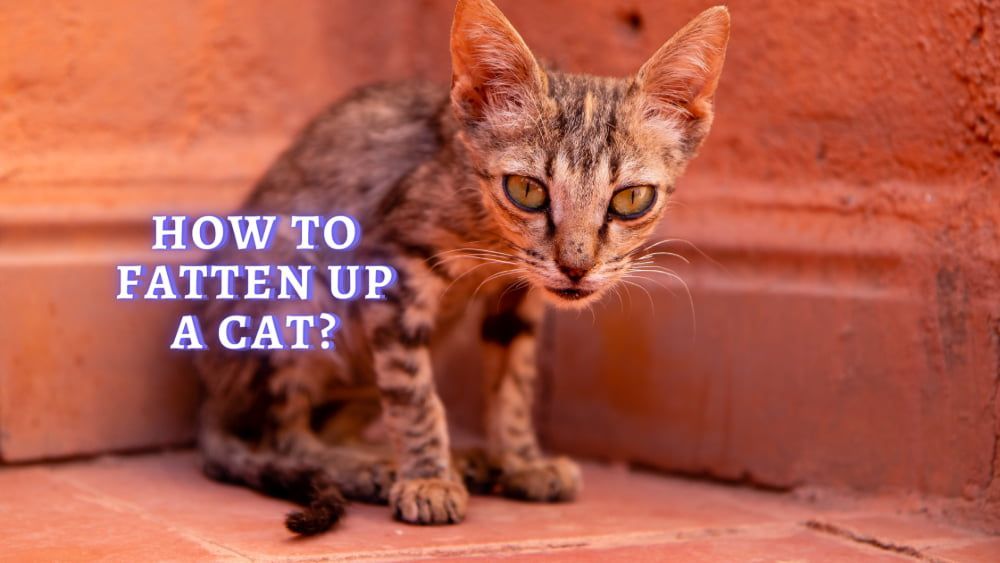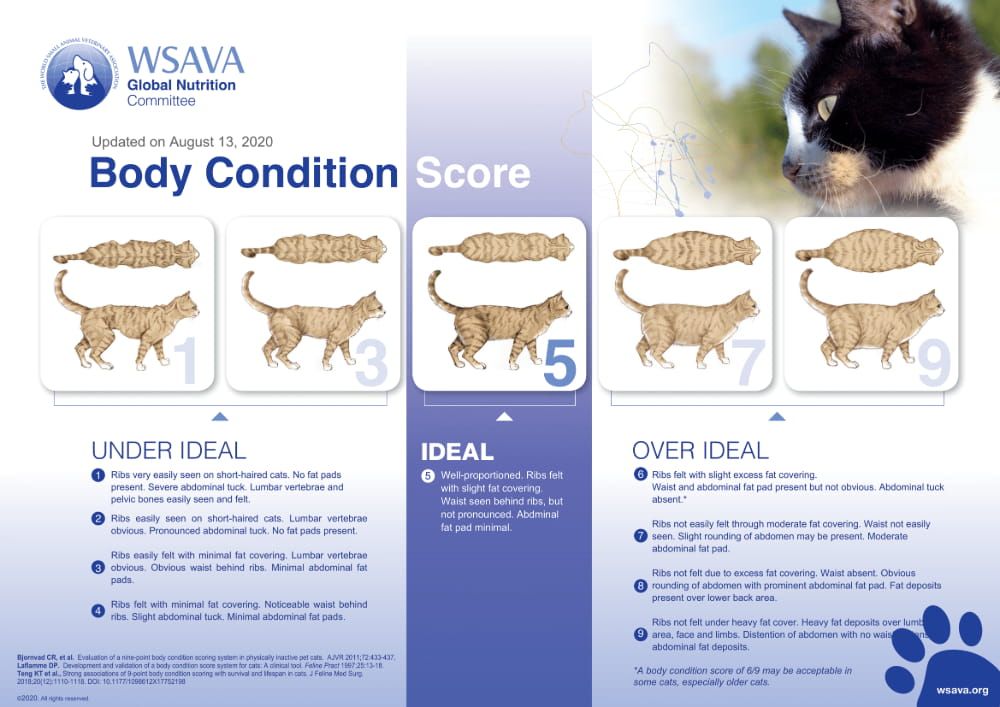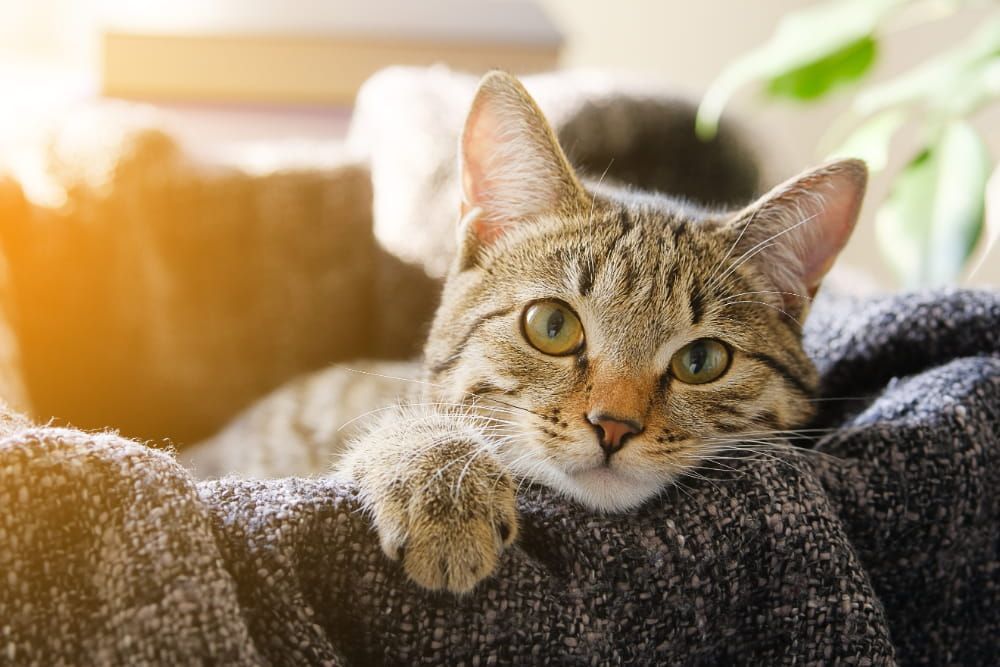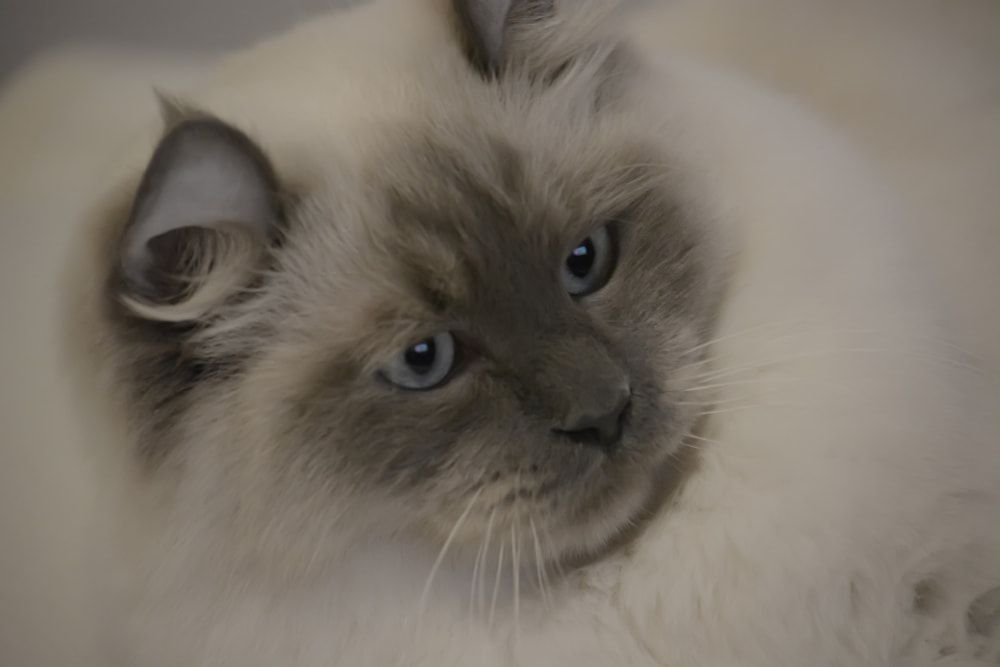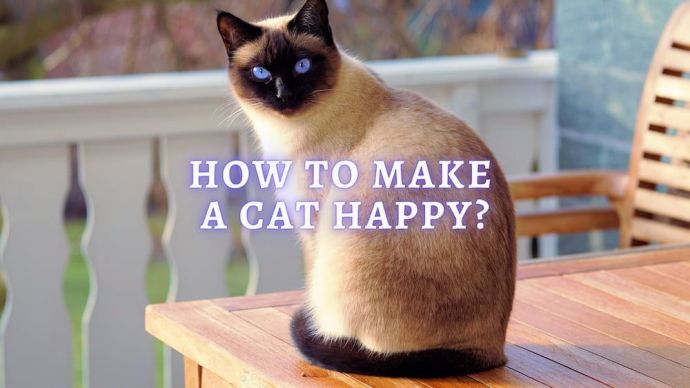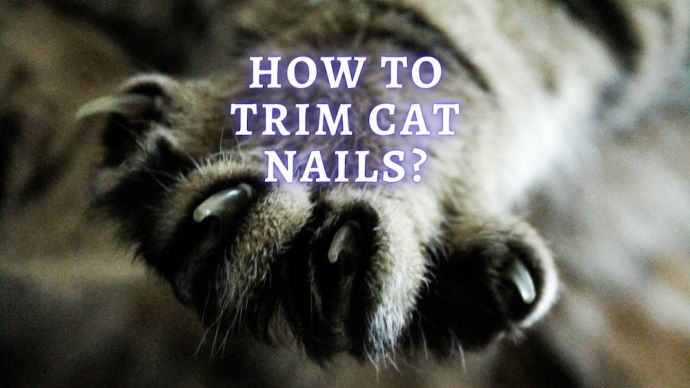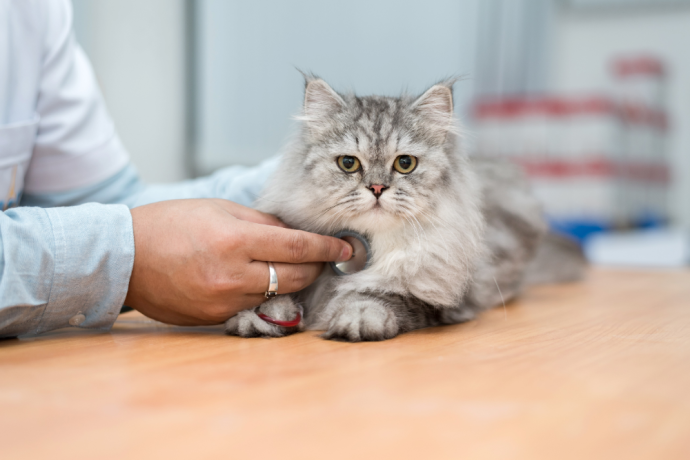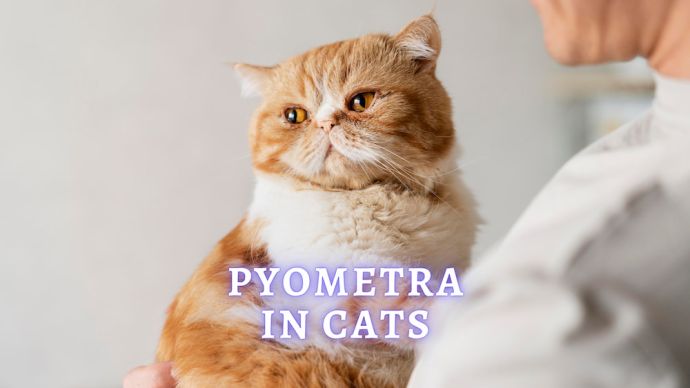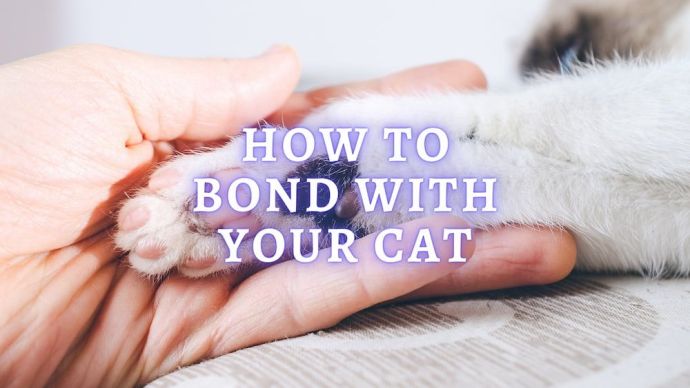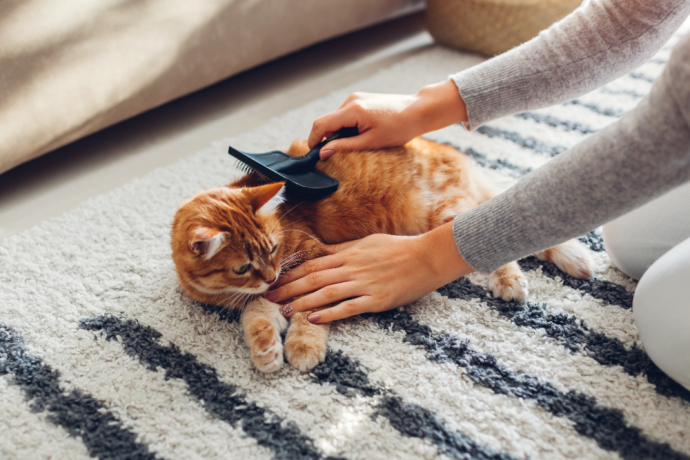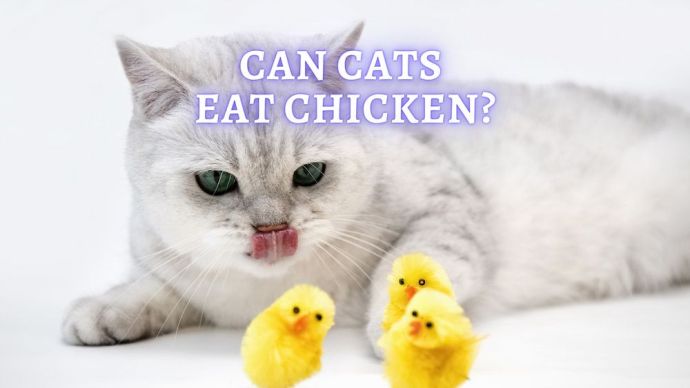How To Fatten Up A Skinny Cat?
Written by:
Author: Carol Young
Carol has worked in specialty, emergency, mixed animal and general veterinary practices, and enjoys all aspects of veterinary medicine. Her special areas of interest include anesthesia, critical care, emergency, dentistry, internal medicine and small animal nutrition.
View all 62 articlesLearn about our editorial process and veterinary review board.
Viewed: 3298
Updated on: 06/15/2023
Although almost 60% of cats in the US are overweight. [1] Felines of average weight might seem thin to their humans. Also, it can be difficult to tell if a cat is too thin if the kitty is very fluffy or has a lot of hair, but as an owner, you are probably aware of weight changes in your pet, and will no doubt note if there is dropping in weight. Owners may wonder how to fatten up their skinny fur baby, but first, we’ll look at how you know if your cat is too skinny, and what factors can cause weight loss.
How Do I Tell If My Cat Is Too Skinny?
Knowing whether your cat is too skinny is a good question for your veterinarian. However, you can determine by yourself if your kitty is too thin by doing a couple of things at home:
- The rib test: You can also feel for your pet’s ribs, and if you can feel the ribs, then her weight is just right. However, if the ribs are quite obvious and palpable, your kitty may be too skinny. If you can feel the bones of her spine along her back, that can also be a sign of being too thin.
- Body condition score: Veterinarians use a body condition score to evaluate a pet’s weight, and you can obtain a body condition score chart from your veterinarian or the American Animal Hospital Association (AAHA) website. [2] The table can help you determine if your cat is too skinny.
Possible Reasons Why Your Cat Is Underweight
There are many reasons for weight loss in felines, and if you have questions, your local veterinarian is your best resource. Weight-loss is attributed to the fact that an animal’s body is not absorbing enough calories or is expending more calories than she takes in. However, if you notice that your pet is losing weight, possible reasons are listed below.
- Intestinal parasites. Intestinal parasites, or worms, can cause unintentional weight loss, and although symptoms are not always obvious, intestinal parasites can also cause bloating, diarrhea, vomiting, and even trouble breathing. If you notice worms or segments of worms in your cat’s stools, that is a sure sign of a parasitic infection, and you should contact your veterinarian as soon as possible.
- Kidney disease. Cats with kidney (renal) disease often lose weight and also have a poor appetite. Weight loss is the first thing you will notice in a pet with chronic renal disease. They are typically older and just can’t filter products through the kidneys as efficiently as they used to. As the kidneys fail to work as well, large amounts of protein are lost in the urine, and kidneys cannot effectively concentrate urine or filter waste products from the body. This is why felines with kidney disease urinate and drink a lot, and as the body loses protein in the urine, the body digests the muscles to get the protein it needs, and this is why your kitty lose weight: The lack of appetite and the catabolism of protein stores in the muscles.
- Hyperthyroidism. In felines with overactive thyroids (hyperthyroidism), they often always seem hungry and have a good appetite but still lose weight. Hyperthyroidism is the result of a benign hormone-producing tumor on the thyroid gland that increases thyroid levels, and like renal disease, happens most often in older cats. In addition to weight loss, hyperthyroidism can cause increases in drinking and urination, increased activity, vocalizing, vomiting, loose stools, and muscle loss. In its end stages, hyperthyroidism can lead to heart problems or even death.
- Diabetes. Diabetes is caused by the body’s inability to produce the hormone insulin, the inability to respond to it, and another condition that can cause weight loss in pets. Diabetic kitty often drink and urinate excessively, may be lethargic, and have a decreased appetite. If you suspect that your kitty may be diabetic, contact your veterinarian. Your veterinarian can do a simple blood test to determine if your feline is diabetic.
- Dental disease. If your pet suddenly stops eating and begins to lose weight but seems otherwise healthy, it could be something as simple as a sore tooth causing the problem. Drooling or pawing at the mouth may be other signs of a tooth issue. Mouth ulcers or severe gingivitis can also contribute to the problem.
- Gastrointestinal disease. Gastrointestinal disease (GI disease) can also cause cat weight loss, and in this case, symptoms include diarrhea, no appetite, and vomiting. GI disease is a condition that can be caused by a variety of factors, such as inflammatory bowel disease (IBD), GI infections, and food allergies/sensitivities.
- Lung disease. Lung disease, asthma, chronic bronchitis, and chronic obstructive pulmonary disease (COPD) are long-term inflammatory conditions that affect the respiratory system and lungs. Cats with asthma and chronic bronchitis tend to have coughing or wheezing symptoms and may exhibit exercise intolerance or tire quickly after play. Kitties with COPD may also cough and tire easily, and in more serious cases, they will have a hard time breathing. These pets often suffer from a lack of appetite, lethargy, and weight loss. If you notice your feline breathing hard, rapidly, and open mouth breathing, contact your veterinarian as soon as possible.
- Chronic pain. Cats who are in chronic pain, from either arthritis, dental disease, GI inflammation, or other health conditions, can also lose weight. Other conditions such as chronic dermatitis, interstitial cystitis/urologic syndromes, and eye disorders can also cause pain in cats, negatively affecting the appetite. Kitty who are in pain tend to hide and avoid interaction with humans and other pets.
- Cancer. As in people, felines who suffer from cancer also experience weight loss and muscle wasting, even if they have a healthy appetite. This condition is called “neoplastic cachexia,” a condition where a cat’s energy needs are increased as glucose production also increases. Cancer cells also use up a lot of energy, and as a result, can cause weight loss. Other symptoms of cancer in pets include loss of appetite, lethargy, and hiding.
- Anxiety, stress, or depression. Stressed cats may go off their food for some time, resulting in weight loss. Stressful situations may include a new move, a noisy household, competition with other animals, or any interference with their daily routine.
Create A Weight Gain Plan With Your Veterinarian
Depending on the cause of your pet’s weight-loss, you can work with your veterinarian on a weight gain plan for your kitty. This plan can include anything from special diets, supplements, and appetite stimulants. Once you and your veterinarian have a plan for treating the cause of the weight loss, you can get to work on fattening up your cat. Your veterinarian can offer specific suggestions based on the age and health needs, and recommend a diet specific to your cat. You can also monitor your cat’s weight with regular weigh-ins with your veterinarian. It is important to work with your veterinarian to ensure that your skinny fur baby receives the nutrition she needs to gain weight.
Choose What To Feed A Cat To Help Them Gain Weight
Cats are carnivores and need way more protein in their diets than dogs. However, if you have questions about what to feed your skinny feline, consult your veterinarian. Depending on condition or diagnosis, it is vital to offer a well-balanced diet that meets your pet’s nutritional needs. Whatever you feed your pet, make sure that the diet contains the necessary proteins and amino acids essential to their well-being.
READ MORE: Cat Not Eating But Acting Normal
Tips for Helping A Cat Gain Weight
If you think your kitty needs to gain weight, you may want to contact your veterinarian to rule out any underlying medical conditions. However, you can do a few things at home to entice your skinny pet to eat:
- More frequent meals. Try more frequent meals. For example, make sure that your cat has access to high-quality food more often throughout the day. Offer nutritious treats and warm pate in between feedings. Most felines like to ‘graze’ and eat small meals throughout the day so having food available all day long can make all the difference. Of course, always check with your veterinarian first.
- Private eating area. If you have a multi-pet household, and one pet may be “bullying” the other during meal times, make sure that all of your pets have access to food throughout the day in a safe, non-threatening environment. Offering your skinny cat a quiet, private place to eat might help.
- Offer warmed food. Felines respond to smells when it comes to eating, so try warming some canned food in the microwave for five to ten seconds to enhance its aroma, just make sure to use an appropriate microwavable container.
- Offer some rotisserie chicken. You can offer your skinny pet a bit of shredded rotisserie chicken, or boiled chicken into their regular food to enhance the smell. Most cats love the smell and flavor of roasted chicken, but just be sure to only feed skinless white meat.
- Higher calorie food. Some skinny felines may simply need a higher calorie food and can put on weight when offered high-calorie or specially-formulated therapeutic food. Older cats trying to keep on weight may benefit from easily digestible foods, omega fatty acids, and probiotics. [3]
- Offer canned food. If you feed your pet dry kibble, try offering high-quality canned food in addition to dry kibble.
- Offer variety. For cats who are finicky eaters, try offering different flavors, types, and consistencies of dry kibble and canned food. Some skinny kitties prefer canned food with gravy, pate, or a salmon stew.
- Add some water or liquid. Adding a small amount of the liquid from a can of tuna or unsalted chicken broth is an excellent way to entice your pet to eat.
READ MORE: How Long Can a Cat Go Without Water?
Make Sure the Food Fits Their Nutritional Needs
Unlike dogs, cats are essentially obligate carnivores, and that means that they need essential nutrients for their health and well-being from animal protein. For cats who love to hunt mice, mice contain around 55% protein, [4] 45% fat, and hardly any carbohydrates. However, most dry foods contain 40% carbohydrates, [5] and as dry food contains more carbohydrates than wet food, offering wet food in addition to dry will ensure that your cat is getting enough protein.
READ MORE: Cat Nutrition Needs (Vet Advice)
Talk to Your Vet About Appetite-Stimulating Medicine
Depending on the cause of your cat’s weight-loss, it may be worth it to talk to your veterinarian about an appetite stimulant for your pet. Appetite stimulants come in the form of pills or liquids, and after thirty minutes to an hour after taking medicine, your cat may get the munchies ready to eat. Appetite stimulants can also come in the form of a transdermal patch for those owners who do not want to give pills or liquids.
FAQs
What is best to feed my skinny cat, wet or dry food?
The answer to this question depends on the cause of your cat’s weight loss, and although both dry and wet cat foods offer the nutrition and calories needs, this question may be best answered by your veterinarian. However, blending wet and dry kibble can offer the best of both worlds, with wet food providing a bit more moisture to your cat’s diet, as well as adding variety.
Can I feed my skinny cat kitten food?
Kitten foods are typically higher in calories and protein than adult cat food, and your veterinarian may recommend kitten food to help provide added calories. However, it is essential to remember that the best food for a skinny cat contains animal protein instead of plant proteins.
How can I get my skinny cat to gain weight?
Depending on the reason for your cat’s weight loss, it’s essential to consult with your veterinarian regarding feeding a high-quality, high-calorie diet that contains the needed nutrients for your cat.
What food will help a cat gain weight?
There are many commercial cat diets available that help your skinny pet gain weight, and your veterinarian may recommend a specially formulated veterinary diet that can offer increased calories.
How can I get my skinny cat to gain weight?
The answer to this question depends on calories and protein and the cause of your cat’s weight loss. As mentioned above, felines are carnivores and require diets that are high in protein and amino acids.
How long does it take for a malnourished cat to gain weight?
This depends on the cause of your cat’s weight loss. For example, if your skinny cat has renal disease, it may take several weeks to months to see changes, but if your cat is skinny due to dental disease or a loose tooth, you should expect almost improvement after a professional dental procedure.
You can do several things to fatten up a cat, and it’s always best to first consult your veterinarian. Your veterinarian is your best resource when diagnosing and treating a skinny cat and helping you find the best way to help your feline put on weight.
Article Sources:
- Association for Pet Obesity Prevention.” Association for Pet Obesity Prevention, 25 Feb. 2021, petobesityprevention.org/
- “Body Condition Scoring (BCS) Systems.” American Animal Hospital Association, aaha.org/globalassets/02-guidelines/weight-management/weightmgmt_bodyconditionscoring.pdf.
- Wooten, Sarah . “How to Put Weight On a Cat.” Hill’s Pet Nutrition, 11 Nov. 2019, hillspet.com/cat-care/healthcare/helping-your-cat-gain-weight.
- Bales, Liz . “What to Feed a Cat for Weight Gain.” PetMD, 28 May 2020, petmd.com/cat/nutrition/what-feed-cat-weight-gain.
- Bales, Liz. “How to Shop Smart for Healthy Cat Food.” PetMD, 20 Oct. 2020, petmd.com/cat/nutrition/evr_ct_food.
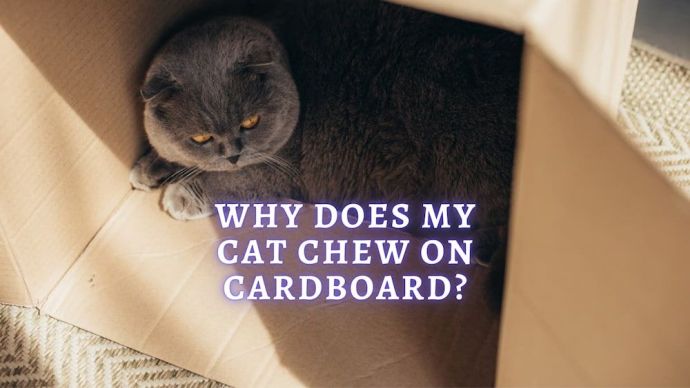 Cat Veterinary Tips Cat Chewing Cardboard: Why Does My Cat Chew On Cardboard? Vet Advice
Cat Veterinary Tips Cat Chewing Cardboard: Why Does My Cat Chew On Cardboard? Vet Advice - 1268
- 0
 Cat Care Why Does My Cat Attack My Legs? 10 Reasons Why and What To Do About It (Vet-Approved Advice)
Cat Care Why Does My Cat Attack My Legs? 10 Reasons Why and What To Do About It (Vet-Approved Advice) - 45084
- 21
 Cat Veterinary Tips Cat Stomach Gurgling: Vet Advice on Why is Your Cat Stomach Gurgling?
Cat Veterinary Tips Cat Stomach Gurgling: Vet Advice on Why is Your Cat Stomach Gurgling? - 33736
- 4
 Cat Veterinary Tips My Cat Lost its Voice: Can Cats get Laryngitis? (Vet Advice)
Cat Veterinary Tips My Cat Lost its Voice: Can Cats get Laryngitis? (Vet Advice) - 22891
- 13









